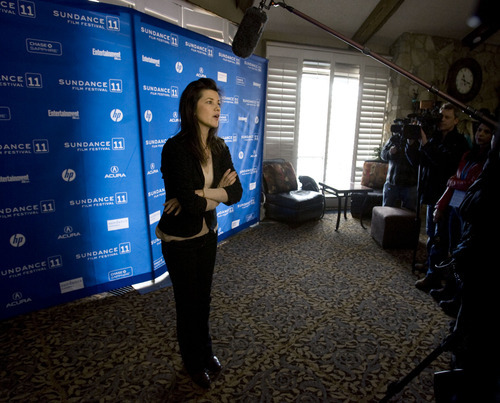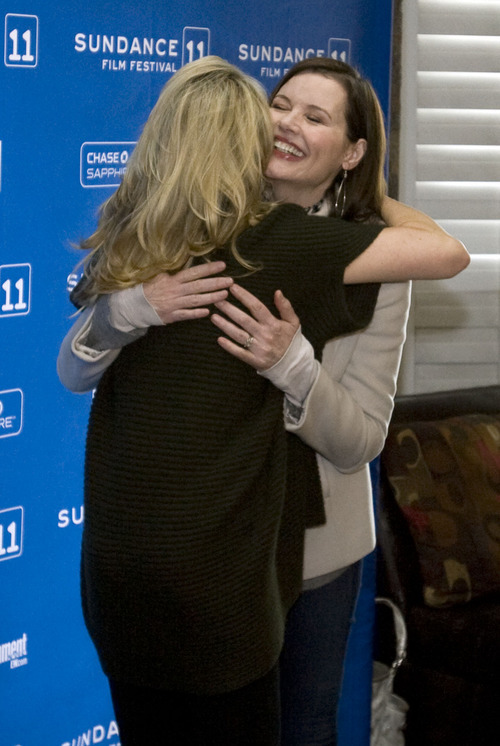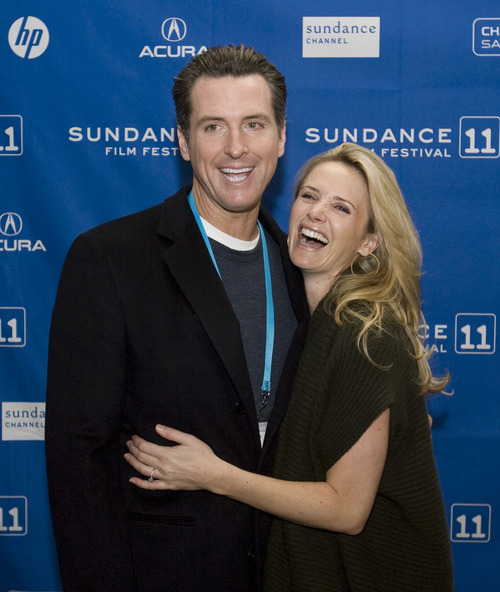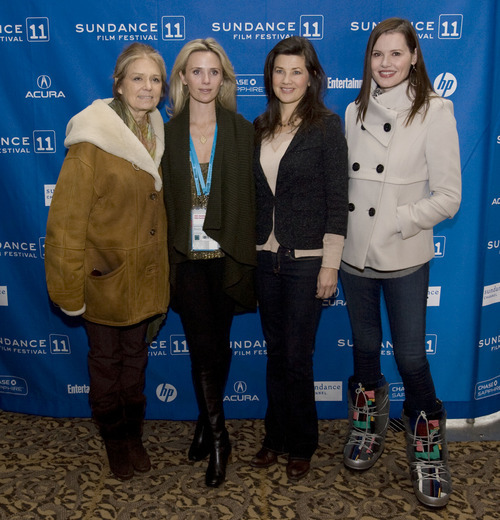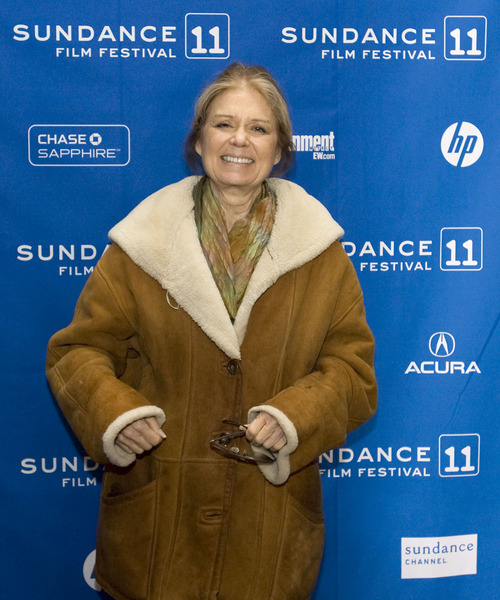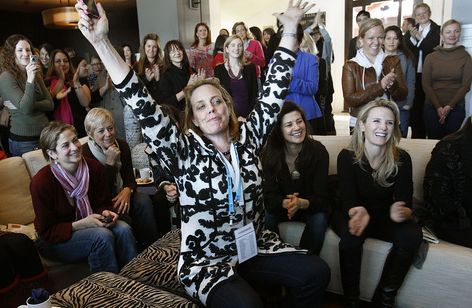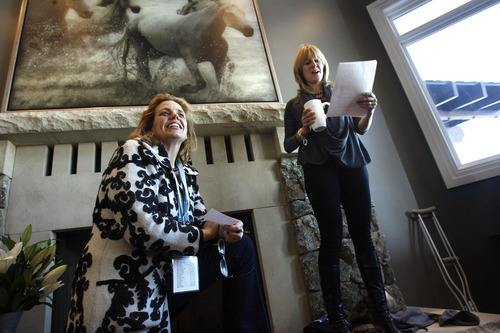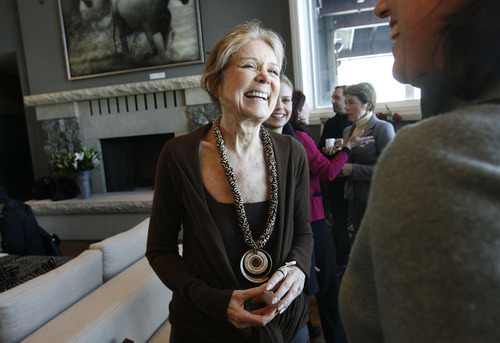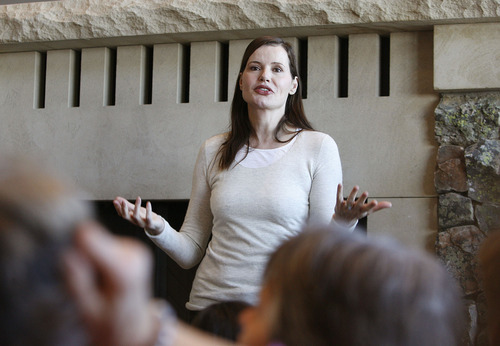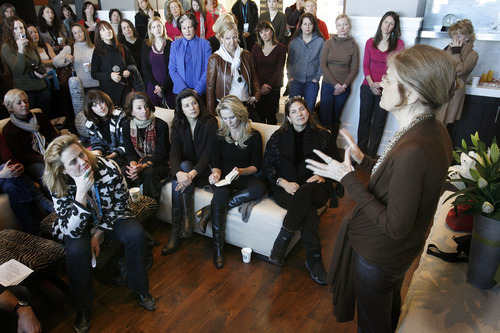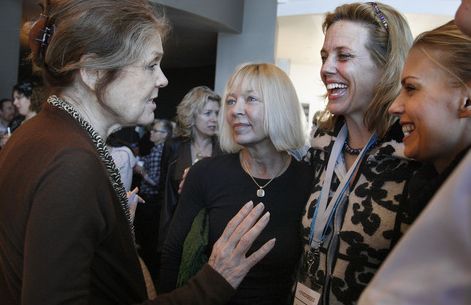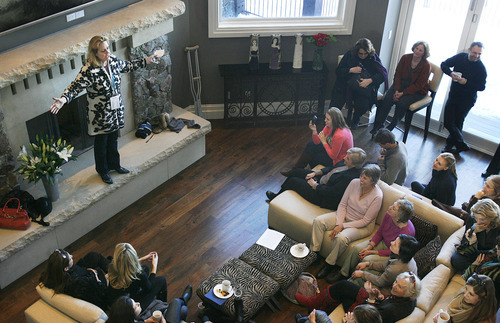This is an archived article that was published on sltrib.com in 2011, and information in the article may be outdated. It is provided only for personal research purposes and may not be reprinted.
On the first Saturday morning of the Sundance Film Festival, Geralyn White Dreyfous hangs up her cell phone to address the issue presented by the person in front of her.
Problem is, every time she hangs up her phone, it rings again.
In the high-stakes game of making sure all the right people have all the right tickets for all the right films, Dreyfous might as well be an air-traffic controller.
"Who's on the wait list?" Dreyfous asks someone on the phone.
"Here's one of our interns," she says to someone next to her. "Let's see if she's got tickets."
Founder of the Salt Lake City Film Center and co-founder of Impact Partners, Dreyfous is executive producer to three films at this year's festival and is helping to promote another three.
Time to check e-mail passed days ago. She hasn't had more than six hours of sleep in three weeks. Yet even the hustle and bustle of the festival is deceiving. For every film that makes it to Sundance, Dreyfous estimates it requires at least two years of behind-the-scenes work to get them ready for screenings.
"I'm running on fumes," she said, catching her breath between handshakes, hugs and phone calls.
If so, she's still flying high. And one of the benefits of scaling such heights is that, if you're lucky, you might reach a personal milestone. For Dreyfous, this Saturday morning brought such a moment.
—
Are you 'Miss Represented'? • Raised in an Irish-Catholic family in Massachusetts, Dreyfous and her three brothers might never have come into the world if their mother hadn't abandoned convent studies. When she did, Maureen White raised Dreyfous, her first child, with the ideals of feminist writer Gloria Steinem in mind.
And soon after Dreyfous became the first from her town's high school to attend Harvard University, it was Jean Kilbourne's 1979 film "Killing Us Softly," which documented the ways women were depicted in advertising to harmful effect, that turned her career toward film.
This morning's Sundance premiere of "Miss Representation," a documentary directed by Jennifer Siebel Newsom and co-produced by Dreyfous, reprises and updates Kilbourne's groundbreaking film. Supporting the documentary on the red carpet is Steinem herself.
"I thank you for so many things in this film," Steinem told Newsom, Dreyfous and others who had a hand in the documentary, at its sold-out screening.
—
'I do not take no for an answer.' • Dreyfous watchers point to 2004 as the year she earned real credibility in the film world. That's when she shared producing credits for "Born Into Brothels," which won the Academy Award for Best Documentary Feature.
Those close to Dreyfous say there wasn't just one defining moment in her career.
"I never watched her ascend, because she's always been at the acme," said Jennifer Jordan, a Salt Lake city author, filmmaker and friend to Dreyfous for 25 years.
Working on a PBS television series about the 1988 presidential race, Jordan struggled to get hold of Pete du Pont, a Republican presidential candidate, for a film interview. She then gave du Pont's phone number to Dreyfous, who called Jordan back an hour later with an appointment time. "She said, 'Jennifer, I do not take no for an answer,' " Jordan said.
Dreyfous cringes slightly at her friend's story, worrying that it makes her sound pushy. But the anecdote underscores her reputation as a film-industry professional more deft at follow-through than grand pronouncements. Early on, the pronouncement sometimes preceded the accomplishment.
"She told her fourth-grade coach she wasn't going to run the one-mile race with the girls," said Maureen White, Dreyfous' mother. "She said she would instead run the two-mile race with the boys. She did, and she won."
—
Producer of many projects • Dreyfous' résumé bullet points don't totally reveal what she's accomplished in a short time.
As founder of the SLC Film Center in 2002, she advocated for the $5.5 million purchase of Main Street's Utah Theater by Salt Lake City's Redevelopment Agency. "To see film as an art permanently endowed in Salt Lake City's downtown core is definitely one of my dreams," she said.
In addition to the many films she produces or helps fund, Dreyfous keeps a hand in producing her own works, including "Year of the Ambassador," the working title for a film about Jon Huntsman Jr.'s ambassadorship in China. "It was his idea to ride a Harley-Davidson along China's border with North Korea, but we couldn't land because of weather."
She's helped to set the tone for this year's Sundance Film Festival as a breakthrough year for women filmmakers, a trend acknowledged by a New York Times story. Dreyfous was feted, along with Steinem and actor Geena Davis, as a crucial voice for women in film at a "coffee and conversation" event at the Park City home of Jacki Zehner, a former partner at Goldman Sachs who provided a grant for "Miss Representation."
"I'm grateful for the opportunity she gave me," Zehner said. "There are a lot of women's stories in this festival, and so much of it is due to Geralyn."
—
Finding her cause • The most formative experience of Dreyfous' early adulthood, mother and daughter agree, was a summer fellowship through Encampment for Citizenship. Dreyfous visited a Sioux reservation in South Dakota just years after the American Indian Movement's takeover of Wounded Knee. And that summer camp was her introduction to the cause of fighting for the underdog.
"It was a boot camp of activism, meant to show us the warts as well as the triumphs of American democracy," Dreyfous said. "My mother was so worried about me turning radical that she sent me a copy of Atlas Shrugged."
Dreyfous landed in the development office of Harvard's Kennedy School of Government, after graduating from Harvard with a sociology degree and working at WGBH television and ABC News' "20/20" program. The consulting and philanthropy skills she learned at the Kennedy School served her well when she would later start her own philanthropic endeavors focused on filmmaking. Her latest venture in that line is Impact Partners, which she founded with Harvard alum Dan Cogan.
Connecting the right investor with the right film "to promote social change" is Impact's mission. That requires a lot of networking, both to find films to support and to find investors. In just the past year, Dreyfous said she and Cogan have considered 487 films. They chose to fund 27, of which 15 have been distributed, with a 93 percent return on investment. In the case of Salt Lake City director Jenny Mackenzie's "Kick Like a Girl," which aired on HBO, the return climbed to as high as 300 percent.
"You can fall in love with lots of great stories in this business," Dreyfous said, "but aside from matching the right pool of investors with the right film, the trick is always to make certain that even the great stories come with a great team that can see the project all the way to the screen."
—
Ticket to the future • As enthralling as this year's festival has been for Dreyfous, she remembers her role as a producer. She's only as good as the next film project she sets her sights on.
Working weekends and gearing up for next year's Sundance Film Festival — or Toronto, or Cannes — means putting film before yourself.
But does that mean that one day even Geralyn Dreyfous might not be able to secure a ticket to a screening of one of her films?
"You never know," Dreyfous said. "These festivals are full of surprises."
Making an impact through film
For more information or to join the community of the Salt Lake Film Center, visit http://www.slcfilmcenter.org.
For more information about Impact Partners, visit http://www.impactpartnersfilm.com.


